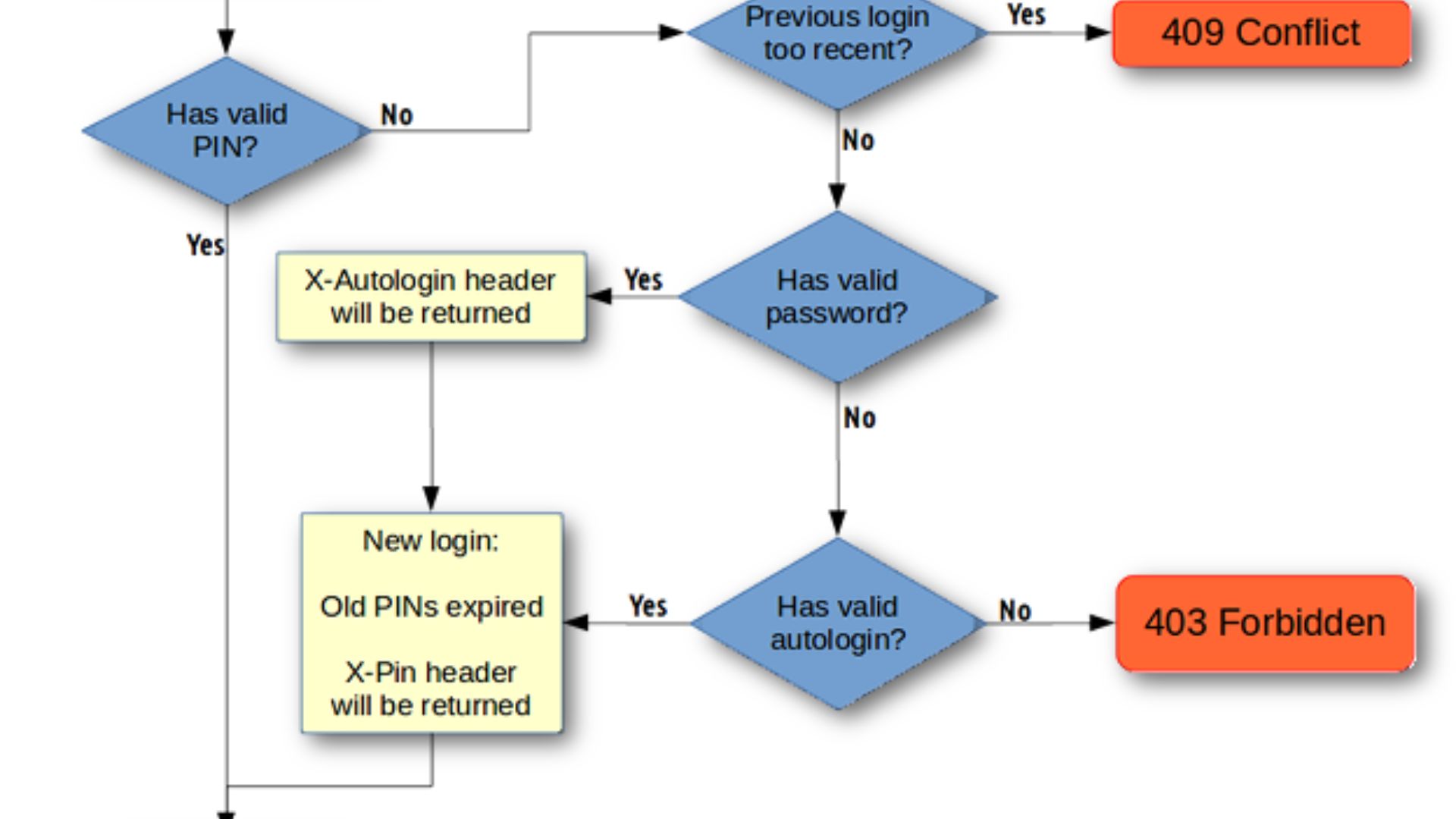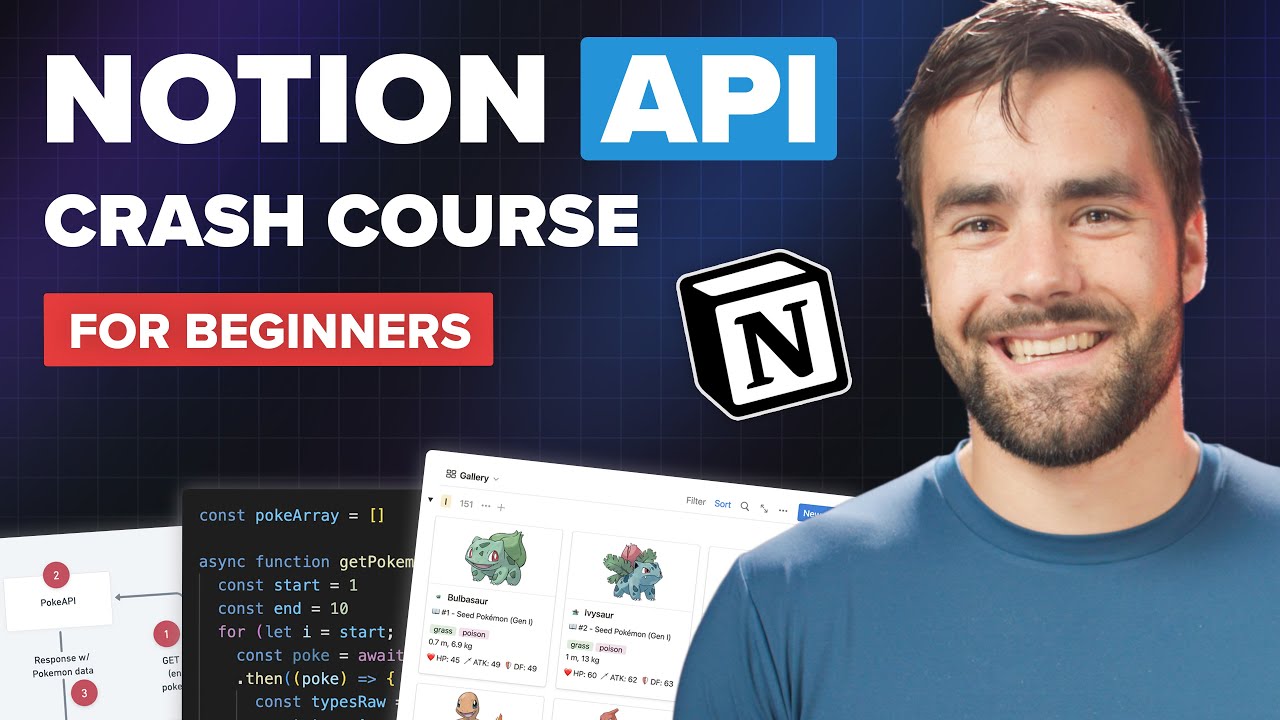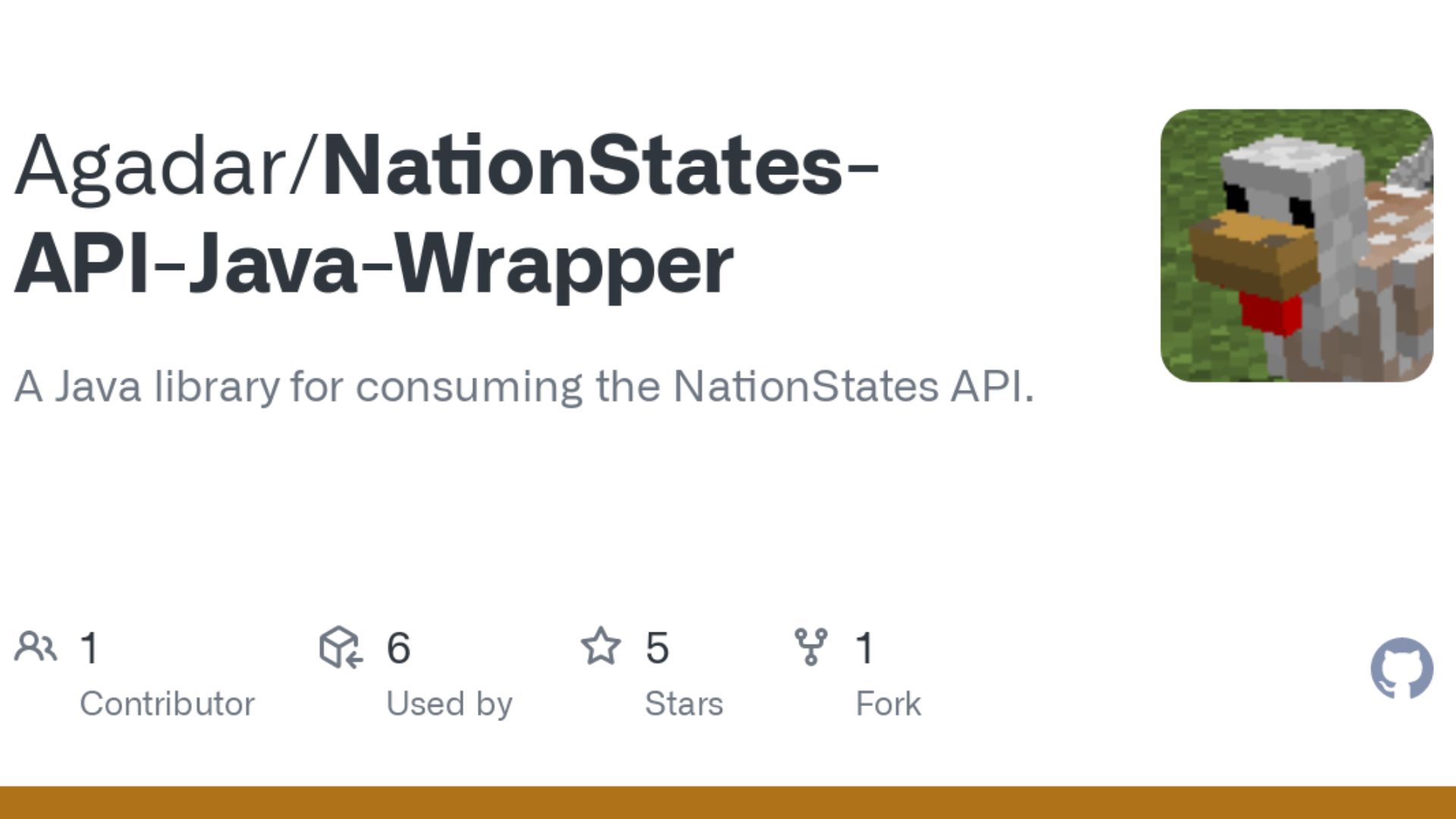NationStates API - Best Practices For Using It
If you are interested in building an application or a website that revolves around NationStates, you will need to make use of the NationStates API. This is a set of programming tools that enable developers to interact with the NationStates platform programmatically.
Author:Anderson PattersonReviewer:Darren McphersonMay 23, 2023971 Shares161.8K Views

If you are interested in building an application or a website that revolves around NationStates, you will need to make use of the NationStates API. This is a set of programming tools that enable developers to interact with the NationStates platform programmatically.
The API provides developers with access to data that is not readily available on the NationStates website, such as regional and national rankings, statistics, and other information about the game's players and their nations.
How Does The NationStates API Work?
The NationStates API works through a system of web requests and responses. Developers can send requests to NationStates servers, asking for specific data or information, and the servers will respond with the requested data in a structured format, such as JSON or XML.
The NationStates API is organized into several different endpoints, each of which provides a specific type of data or functionality. For example, the "nation" endpoint provides information about a specific nation, such as its name, flag, region, and other characteristics, while the "region" endpoint provides information about a specific region, such as its name, founder, and regional statistics.
Using The NationStates API
To use the NationStates API, you will need to have a basic understanding of programming concepts and web development. Specifically, you will need to be familiar with web requests, responses, and data formats such as JSON and XML.
The NationStates API provides a number of endpoints that developers can use to retrieve data from the NationStates servers. To use an endpoint, developers must construct a web request that includes the appropriate parameters and data formats.
For example, to retrieve information about a specific nation, a developer might construct a web request that looks something like this:
- https://www.nationstates.net/cgi-bin/api.cgi?nation=nation_name&q=demographics;wa;history
This request asks the NationStates servers for information about a nation named "nation_name", including its demographics, World Assembly status, and historical information.
Understanding NationStates API Rate Limits And Quotas
When using the NationStates API, developers must be aware of rate limits and quotas that are put in place to ensure the stability and performance of the platform. These limits are designed to prevent abuse of the API and ensure that all users have fair access to the platform's resources.
The NationStates API has two main rate limits: a limit on the number of requests that can be made per minute, and a limit on the amount of data that can be retrieved per day. These limits are subject to change and are enforced on a per-IP basis.
Developers can monitor their usage of the NationStates API using the "usage" endpoint, which provides information about the number of requests made and the amount of data retrieved over a specific period. If a developer exceeds the rate limits or quotas, their requests may be blocked or throttled.
To avoid running into rate limits and quotas, developers can implement caching and other optimization techniques to minimize the number of requests made to the NationStates servers. They can also use the "wait" parameter to introduce delays between requests, allowing the servers to catch up and reducing the load on the platform.
NationStates API Endpoints
The NationStates API provides a wide variety of endpoints that developers can use to interact with the NationStates platform. Some of the most commonly used endpoints include:
Nation Endpoint
The "nation" endpoint provides information about a specific nation, such as its name, flag, region, and other characteristics. Developers can use this endpoint to retrieve detailed information about individual nations.
Region Endpoint
The "region" endpoint provides information about a specific region, such as its name, founder, and regional statistics. Developers can use this endpoint to retrieve information about specific regions and their inhabitants.
World Assembly Endpoint
The "world" endpoint provides information about the World Assembly, including its resolutions, members, and voting records. Developers can use this endpoint to retrieve information about the global politics of NationStates.
Issues Endpoint
The "issues" endpoint provides information about the current issues facing nations in the NationStates world. Developers can use this endpoint to retrieve information about the issues and the potential consequences of different choices.
Trading Cards Endpoint
The "cards" endpoint provides information about trading cards, including their images and descriptions. Developers can use this endpoint to retrieve information about the trading cards and their associated metadata.

Notion API – Full Course for Beginners
Best Practices For Using The NationStates API
When using the NationStates API, it is important to follow best practices to ensure that your applications are reliable, efficient, and secure. Some best practices include:
Caching Data
Caching data is an important technique for improving the performance of applications that make use of the NationStates API. By caching data locally, developers can avoid making unnecessary requests to the NationStates servers, reducing the load on the servers and improving application performance.
Error Handling
Developers should implement robust error handling when working with the NationStates API. This includes checking for errors and responding appropriately, such as by providing meaningful error messages to users or logging errors for later analysis.
Authentication
The NationStates API requires authentication for certain endpoints. Developers should ensure that their applications are properly authenticated before attempting to access these endpoints, to ensure that their requests are properly authorized.
Examples Of NationStates API Applications
The NationStates API has been used to create a wide variety of applications and websites, from simple tools for tracking nation statistics to complex simulations of global politics. Here are a few examples of notable applications that make use of the NationStates API:
NationStates++, By Duxburian Union
NationStates++ is a browser extension that provides a wide range of additional features for NationStates players, including enhanced statistics, custom themes, and improved navigation. The extension makes use of the NationStates API to provide real-time updates and statistics.
NationStates World Census, By Almonaster Nuevo
NationStates World Census is a website that provides detailed statistics on nations and regions in the NationStates world. The site makes use of the NationStates API to gather data and present it in an easily digestible format.
NationStates United Nations, By East Durthang
NationStates United Nations is a website that simulates the global politics of the NationStates world, including the World Assembly and Security Council. The site makes use of the NationStates API to provide real-time updates and voting records.
Enhancing NationStates Gameplay With The API
The NationStates API provides a wide range of opportunities for enhancing gameplay and creating new and engaging experiences for players. By using the API, developers can create custom tools for tracking and analyzing nation statistics, building interactive maps, and simulating global politics.
One popular use of the NationStates API is to create custom browser extensions that enhance the NationStates website with new features and functionality. For example, developers have created extensions that provide real-time updates on nation statistics, automate mundane tasks such as answering issues, and add custom themes and visualizations.
Another use of the NationStates API is to create custom websites and applications that provide new insights into the NationStates world. For example, developers have created websites that provide detailed statistics on nations and regions, simulate global politics, and track the progress of players in the game.
Debugging NationStates API Requests And Responses
Debugging NationStates API requests and responses is an important skill for developers working with the platform. Debugging involves identifying and resolving errors and issues that occur during the development process, such as malformed requests, server errors, or unexpected responses.
One useful tool for debugging NationStates API requests is the "debug" parameter, which provides additional information about the request and response. This can include details about the parameters passed, the data returned, and any errors or warnings that occurred during the request.
Developers can also use a variety of other debugging tools, such as logging, unit testing, and error handling, to identify and resolve issues with NationStates API requests. For example, logging can be used to record requests and responses for later analysis, while unit testing can be used to ensure that requests are properly formatted and that responses are returned in the expected format.
By mastering debugging techniques and tools, developers can ensure that their NationStates API applications are reliable, efficient, and free of errors and issues.
People Also Ask
How Do I Handle Rate Limits When Using The NationStates API?
Developers can monitor their usage and implement caching and optimization techniques to avoid exceeding the rate limits.
Are There Any Restrictions On How I Can Use The NationStates API Data?
Yes, developers must follow the terms of service and ensure that their use of the data is legal and ethical.
What Programming Languages Can I Use To Interact With The NationStates API?
Any programming language that can make web requests and parse JSON or XML can be used with the API.
Can I Create Custom Visualizations Using NationStates API Data?
Yes, developers can use the API data to create custom visualizations and interactive maps.
What Is The Wait Parameter In NationStates API Requests?
The wait parameter introduces a delay between requests, allowing the servers to catch up and reducing the load on the platform.
Conclusion
The NationStates API provides developers with a powerful set of tools for interacting with the NationStates platform in a more meaningful way. By using the API, developers can create engaging applications and websites that provide new insights into the NationStates world.
However, it is important to follow best practices when using the API, such as caching data, implementing error handling, and properly authenticating requests. With these best practices in mind, developers can create robust and reliable applications that enhance the NationStates experience for players around the world.
Jump to
How Does The NationStates API Work?
Using The NationStates API
Understanding NationStates API Rate Limits And Quotas
NationStates API Endpoints
Best Practices For Using The NationStates API
Examples Of NationStates API Applications
Enhancing NationStates Gameplay With The API
Debugging NationStates API Requests And Responses
People Also Ask
Conclusion

Anderson Patterson
Author
Anderson Patterson, a tech enthusiast with a degree in Computer Science from Stanford University, has over 5 years of experience in this industry.
Anderson's articles are known for their informative style, providing insights into the latest tech trends, scientific discoveries, and entertainment news.
Anderson Patterson's hobbies include exploring Crypto, photography, hiking, and reading.
Anderson Patterson's hobbies include exploring Crypto, photography, hiking, and reading.
In the Crypto niche, Anderson actively researches and analyzes cryptocurrency trends, writes informative articles about blockchain technology, and engages with different communities to stay updated on the latest developments and opportunities.

Darren Mcpherson
Reviewer
Darren Mcpherson brings over 9 years of experience in politics, business, investing, and banking to his writing. He holds degrees in Economics from Harvard University and Political Science from Stanford University, with certifications in Financial Management.
Renowned for his insightful analyses and strategic awareness, Darren has contributed to reputable publications and served in advisory roles for influential entities.
Outside the boardroom, Darren enjoys playing chess, collecting rare books, attending technology conferences, and mentoring young professionals.
His dedication to excellence and understanding of global finance and governance make him a trusted and authoritative voice in his field.
Latest Articles
Popular Articles
